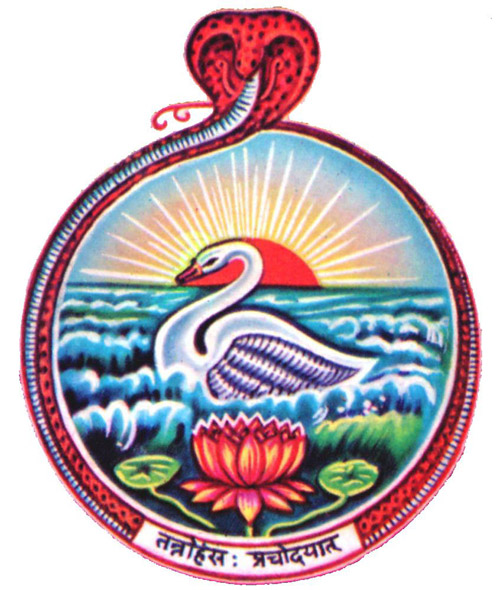
Vedanta is one of the most ancient religious philosophies deriving from India. It affirms the unity of all forms of existence: the nature of the universe and the nature of the individual are merely different manifestations of the same divine nature.
According to the philosophy of the Vedanta, the fundamental purpose of everything that exists is to manifest divine reality, divine truth and divine bliss. Therefore, the philosophy of the Vedanta holds that all religions lead to the same Truth, which is also why the teachings of all divine incarnations, all great prophets and all great spiritual teachers have their place in this school of thought. In the same way, there are no notions of race, nationality or caste, but rather the following maxim: if I help someone, I help myself: if I injure someone, I injure myself.
As a result, there is no goal in Vedanta of converting anyone from their own native religion. On the contrary, the philosophy of the Vedanta aims to provide each of us with practical methods, tailored to our own temperament, to realize the Truth in our own lives. In fact, among all the manifestations of the Divine Reality, only the human being (contrary, for example, to the mineral, vegetable and animal kingdoms) has the ability to become aware of the unity and divinity of these various manifestations. The goal of human life is therefore to uncover and manifest this divinity.
The school of Vedanta offers several methods (yogas) to achieve this, each of which correspond to the main temperaments found in nature.
Jnana yoga (the yoga of knowledge): The practice of discrimination between the Real and the Unreal, and the attainment of the original and ultimate truth by freeing the mind from everything obscuring it and weighing it down.
Bhakti yoga (the yoga of love): The purification of the heart, its feelings and emotions through love devoted to a personal god, so as to intensify the heart in pure and infinite love.
Karma yoga (the yoga of action): The development of creativity through detachment and disinterest: actions are taken with the sole purpose of fulfilling a task or goal (without seeking the results of accomplishing that task or goal), and each action is carried out for the Supreme Being, which is manifested in every person we are led to serve.



